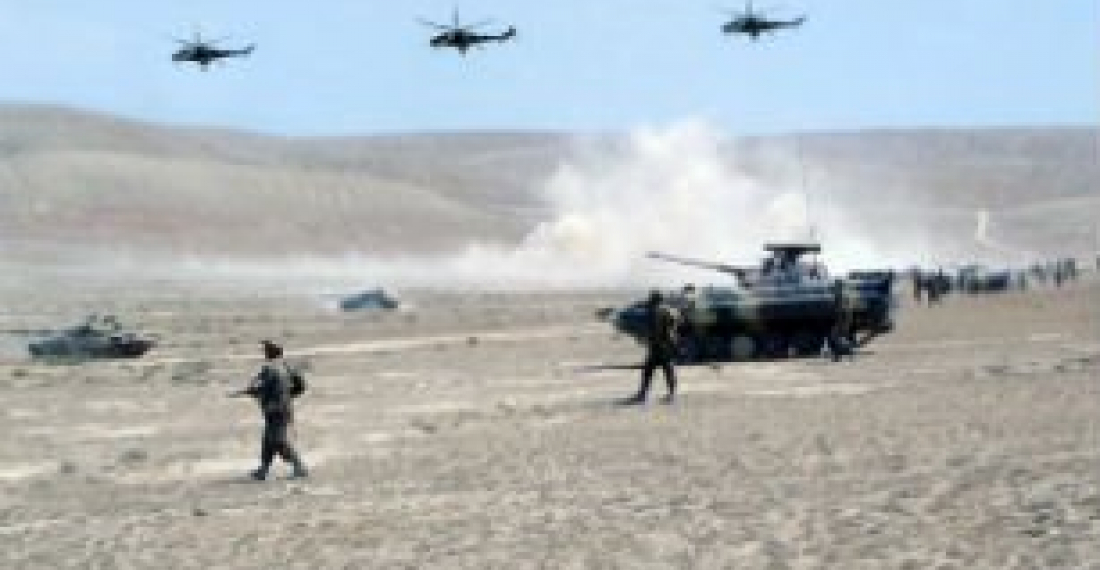Азербайджан проведет широкомасштабные военные учения с участием 30 000 военнослужащих, 250 танков и другой военной техники. Учения начнутся в воскресенье и продлятся пять дней.
Как сообщает информационное агентство АПА со ссылкой на Министерство обороны, в учениях будут задействованы до 30 тысяч военнослужащих личного состава, более 250 единиц танков и бронетехники, до 200 ракетно-артиллерийских установок разного калибра, реактивных систем залпового огня и минометов, 25 единиц боевой авиации различного назначения, а также новые средства радиоэлектронной разведки и беспилотные летательные аппараты.
В ходе учений будут отработаны различные способы ведения современного общевойскового боя и операций в сложных рельефных условиях.
Согласно принятому решению, будут выполнены задачи по передислокации войск и пунктов управления в районы оперативного назначения, сбору и отправке мобилизационных ресурсов по назначению, созданию ударных группировок и их применение на избранных направлениях, переводу военной авиации на запасные аэродромы, а также выводу ракетных и артиллерийских войск на временные огневые и стартовые позиции.
Учения продлятся до 21 апреля.
Источник: commonspace.eu по материалам AПA
Фото: Военные учения Азербайджана в 2016 году (фотография из архива)






